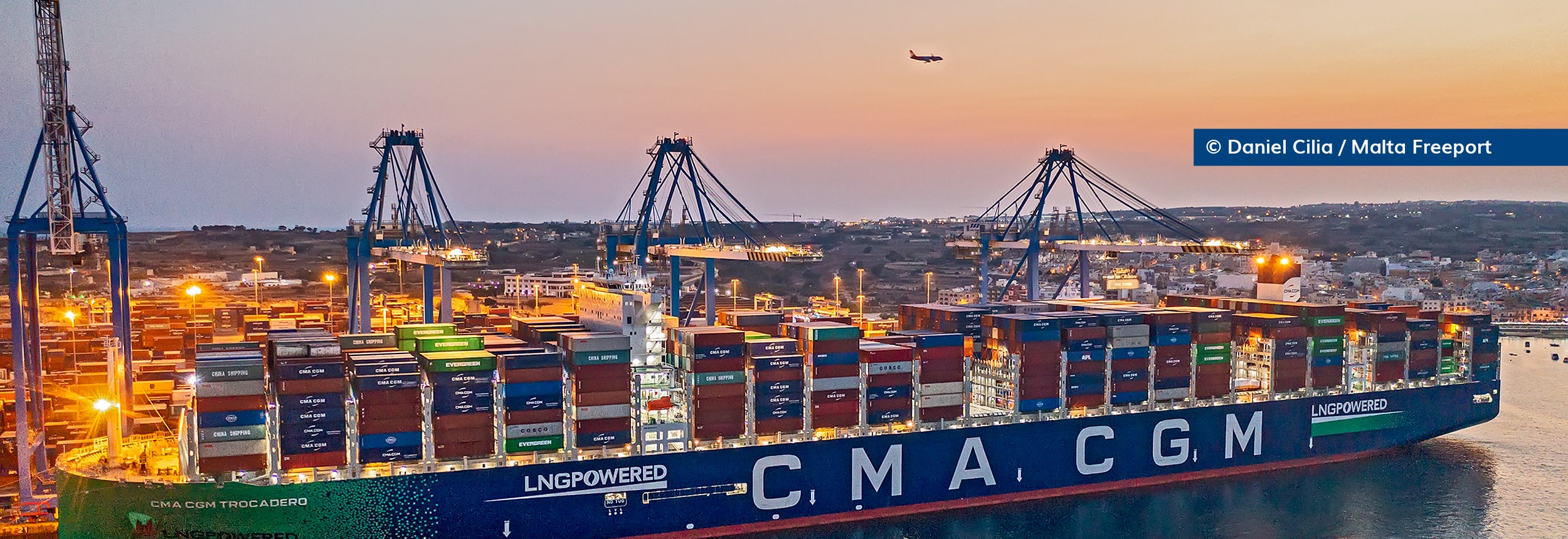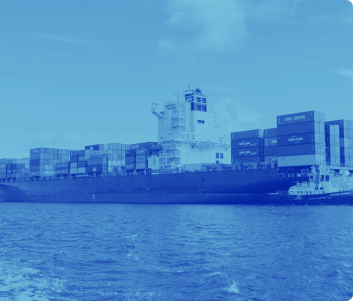
Malta Maritime Hub
Globally recognised as a maritime hub, Malta’s strong reputation speaks for itself. With a long-established foothold within the industry, Malta’s historic relationship with maritime affairs forms part of the country’s national identity.
The maritime industry is the beating heart of Malta’s strong economy. As a proud Maltese business, Sullivan Shipping sees it as a matter of duty to uphold Malta’s status and strong reputation within the international shipping community by continuing to provide exceptional levels of service.
Today, Malta plays host to the largest maritime flag in Europe, boasts Europe’s biggest Shipping Register, and is one of the busiest transhipment hubs in the Mediterranean.
Malta’s strategic geographical location, and historic unity with maritime life, has fuelled the expansion of the industry, transforming Malta into a swirling maritime metropolis and booming centre of trade.


Malta is an advantageous prospect for global and local shipping companies.
- Location: Located in the centre of the Mediterranean, Malta lies on one of the major shipping routes – conveniently located for those requiring bunkering, conveyance, and other such services. Malta’s strategic position, on the crossroad between Southern Europe and Northern Africa, makes it an ideal hub for transhipment and logistics.
- Business Environment: Malta’s strong economy and political stability mean that many Malta maintains its reputation as an epicentre of business due to its innovative, values-centred approach. Malta is able to offer the ideal jurisdiction for activities such as Ship Registration, Ship Management, and wider corporate services, positioning Malta as a vastly advantageous economic environment in which to conduct trade.


Malta’s port facilities include:
- Grain Terminal: Located in Malta’s deep-draft Grand Harbour, the Kordin Grain Terminal offers handling, storage, and transhipment of all types of free-flowing grains such as wheat, maize, soybean, and barley, which reach the Mediterranean.
- Malta Freeport: The Malta Freeport Terminals Ltd in Marsaxlokk is one of the Mediterranean’s major container terminals. Equipped with the latest technology, serving many of the giant operators in the container carrier sector. The Malta Freeport Terminal offers warehousing facilities on its premises. Read more about Malta Freeport
- Oiltanking (Malta) Ltd: As part of Malta’s duty-free port and warehousing complex, Oiltanking designed and built a new terminal in partnership with the Malta Freeport Corporation offering an extensive list of services.
- Ship Dry Docking and Repairs: Ship drydocking and repairs is one of the major activities in Valletta, capital of Malta. Maltese people take great pride in their reputation as skilled tradespeople, and the shipyards of Valletta offer a wide range of products and services including ship repairs, quality engineering, steel fabrication, offshore services, energy supply, yachting and conversion facilities. Palumbo Malta Shipyards Ltd
- Valletta Gateway Terminal (VGT): The facilities offered by VGT include 560 metres of quay and 7,200 metres of sheds (surrounded by ample storage space in an open floor area) at the Deep-Water Quay [DWQ] at Marsa, in the inner part of the Grand Harbour.
- Laboratory Wharf: Situated opposite to the DWQ on the southern side of the Grand Harbour, Laboratory Wharf offers a variety of services including handling of RoRo, conventional cargo, containers, and cars. The area also has a large compound totalling 10,400 square metres, suitable for storage of vehicles, for both domestic and transhipment purposes.
- Valletta Waterfront: Operated by VISET Malta plc, Valletta Waterfront is located in the Grand Harbour, minutes away from Valletta. The terminal welcomes over 300 cruise ships annually as port of calls, turnarounds as well as home porting and a guaranteed market of over 550,000 cruise liner passengers every year.
- Cargo procedures: As of July 2016, the International Maritime Organisation (IMO) amended the international convention for Safety of Life at Sea (SOLAS). The amendment means that ships and exports have to state a container’s gross, verified weight to the ocean carrier and port terminal before being loaded onto a vessel.
- As of the introduction of this new law, it is a violation to load a stuffed container onto a vessel if the vessel operator and marine terminal operator do not have the verified container weight. And terminals now have the power to refuse containers that do not have a verified weight at the time of gate entry.
- Failure to supply verifiable and certified weight certificates that meet the law’s requirements results in delayed shipments and increased expenses.
- For more information, please see the following guidance from The World Shipping Council
Should you require any further assistance, do not hesitate to contact us.


